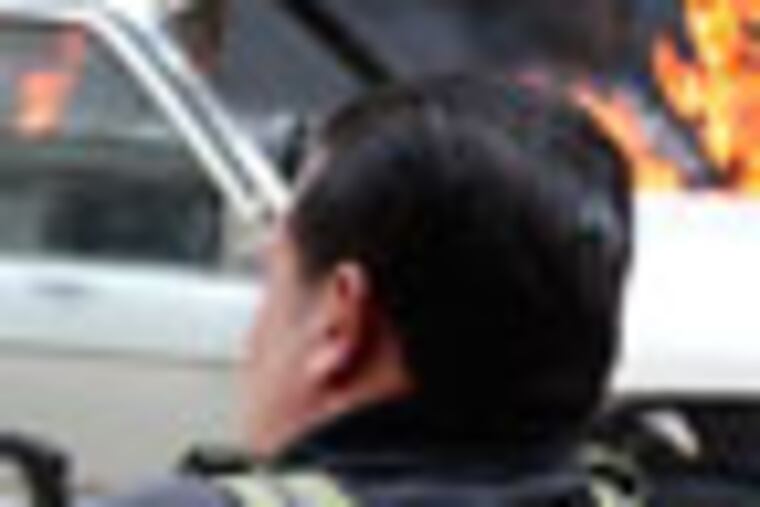Unrest spreads to Lebanon
TRIPOLI, Lebanon - Firing assault rifles and rocket-propelled grenades, Lebanese gunmen clashed in street battles Monday as sectarian tensions linked to the 14-month-old uprising in Syria bled across the border for a third day.

TRIPOLI, Lebanon - Firing assault rifles and rocket-propelled grenades, Lebanese gunmen clashed in street battles Monday as sectarian tensions linked to the 14-month-old uprising in Syria bled across the border for a third day.
At least five people have been killed and 100 wounded in Lebanon's second-largest city since the gun battles erupted late Saturday, security officials said. Residents say differences over Syria are at the root of the fighting, which pits neighbor against neighbor and raises fears of broader unrest that could draw in neighboring countries.
Lebanon and Syria share a complex web of political and sectarian ties and rivalries, which are easily inflamed. Tripoli has seen bouts of sectarian violence in the past, but the fighting has become more frequent as the conflict in Syria worsens.
The fighting camps break down along sectarian and political lines. On one side are Sunni Muslims who support the rebels trying to oust Syrian President Bashar al-Assad. On the other are members of the tiny Alawite sect, followers of an offshoot of Shiite Islam who are Assad's most loyal supporters.
The recent clashes were sparked by the arrest of Lebanese national Shadi Mawlawi, an outspoken critic of Assad. The Sunni fighters say the root of the latest conflict in Tripoli is across the border.
"Syria. It wants it this way. It wants to start a battle here so it can say, look, even in Lebanon the Sunnis are killing the Alawites," said Mustafa Nashar, 35, whose family lives in an apartment overlooking Syria Street, which cuts through the overwhelmingly Sunni Bab al-Tabbani neighborhood.
Groups of men, many carrying assault rifles and wearing military-style vests, ducked through trash-strewn alleys. The residents who remained in the neighborhood took cues from fighters about when to sprint across alleys to evade the snipers up the hill.
A car with children crouching in the back sped past one alley, a bullet pinging the pavement behind it.
The Lebanese army set up a small position a few hundred yards from the fighting, but no soldiers or police could be seen in the immediate area.
Sunnis comprise the majority in Syria, but Assad and his fellow Alawites play an outsize role in the country's government and security forces, prompting seething resentments. Inspired by the revolts in Tunisia and Egypt, Syrian protesters defied the authoritarian regime and began taking to the streets in March 2011 to call for political reform. A relentless government crackdown led many in the opposition to take up arms. Some soldiers also have switched sides and joined the rebels.
World powers have backed a peace plan for Syria that was put forward by U.N.-Arab League envoy Kofi Annan, but the bloodshed has not stopped. More than 100 U.N. observers have been deployed in Syria to oversee a truce between the government and armed rebels. The U.N. estimates the conflict has killed more than 9,000 people.
On Monday, Syrian troops shelled the rebel-held town of Rastan, sparking intense clashes that sent bloodied victims flooding into hospitals and clinics, activists said.
Rami Abdul-Rahman, the head of the Britain-based Syrian Observatory for Human Rights, said 23 soldiers were reportedly killed in the clashes. He cited rebel fighters but did not identify them, and the account could not be independently confirmed.